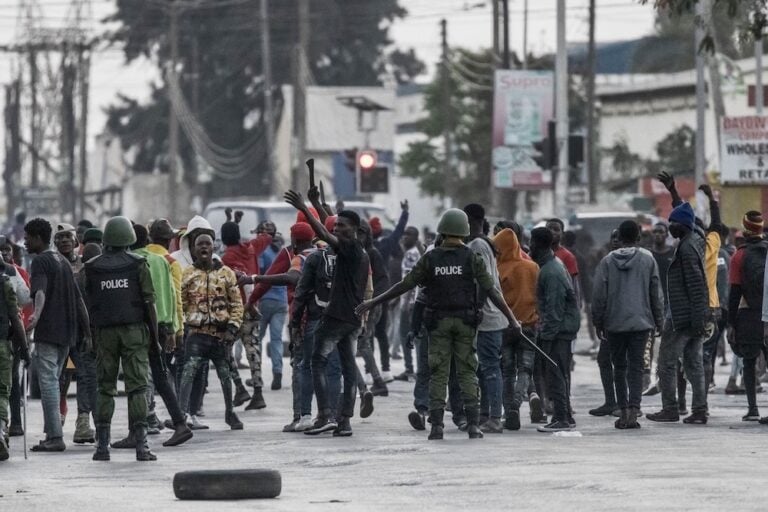On 14 August 1996, three editors from “The Post” newspaper pleaded not guilty in the Lusaka High Court on accusations that they had received and published classified information in contravention of Section 4 of the State Security Act (not the Official Secrets Act as was previously reported). The trio — editor-in-chief Fred M’membe, managing editor […]
On 14 August 1996, three editors from “The Post” newspaper
pleaded not guilty in the Lusaka High Court on accusations that
they had received and published classified information in
contravention of Section 4 of the State Security Act (not the
Official Secrets Act as was previously reported). The trio —
editor-in-chief Fred M’membe, managing editor Bright Mwape and
special projects editor Masautso Phiri — pleaded not guilty to a
charge of receiving classified information on the Constitution.
They first appeared before the High Court on 12 August to make a
plea, but their appearance was delayed due to what the judge
stated had been the “lack of clarity” in the state’s charges.
(The state had combined into one the charges of possession and
receiving classified information, but the judge asked the state
prosecutors to separate the charge into two before the three
accused could make a plea.) The trial is to begin on 18 October.
**Updates IFEX alerts dated 20 March, 16 and 14
February, and others**
Defence lawyer Christine Kunda said that the state later dropped
the charge of possession of classified information because it
could not prove “beyond [a] reasonable doubt that the three
accused were found in possession of a state document containing
information on the constitution.” Kunda quoted the judge as
saying, “You don’t use criminal law on fishing expeditions” —
referring to the state’s failure to bring up clear charges but
with the hope that the accused would nevertheless be found
guilty. The state had previously dropped the charge of possession
of prohibited materials, an offence referring to the 5 February
edition of “The Post” which President Frederick Chiluba banned
for carrying the article about the Constitution. However, the
charge of receiving classified information stands.
Background Information
On 5 February, President Chiluba banned the 5 February edition of
“The Post”, and armed and plainclothes police, working under
instructions from Chiluba, entered the newspaper’s premises and
searched the offices. Later, police arrested M’membe, Mwape and
Phiri. They were charged, under the State Security Act as well as
the Prohibited Publications Act, with possession of and receiving
classified information. “The Post” had published a story in its 5
February edition that revealed the government’s intention to
force through in March 1996 the disputed draft Constitution. The
trio was released on bail on 7 February (see IFEX alerts).


